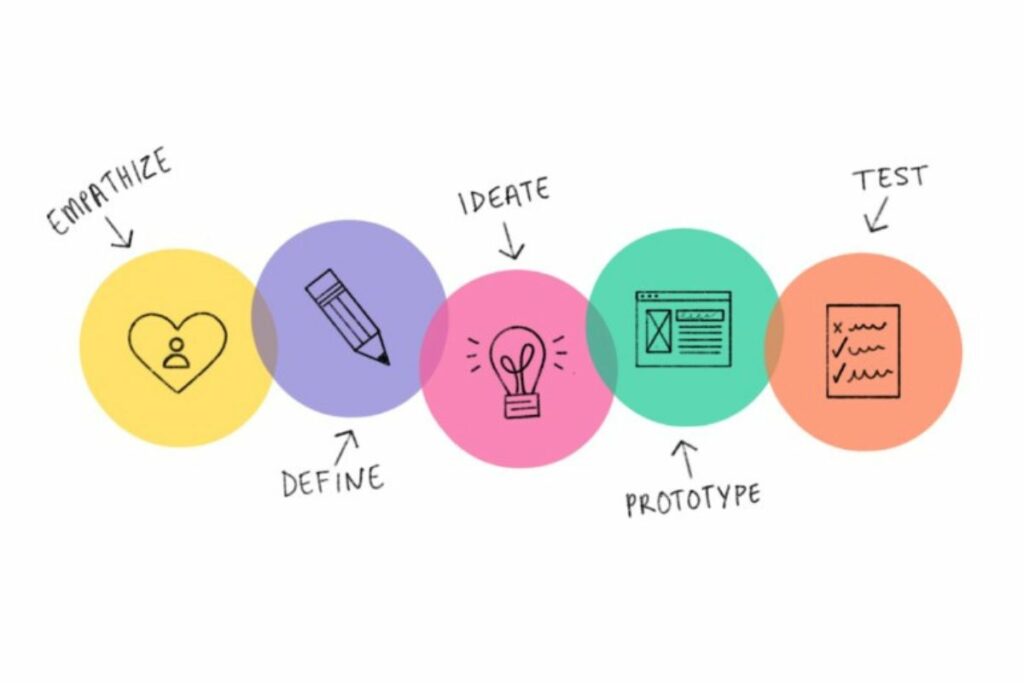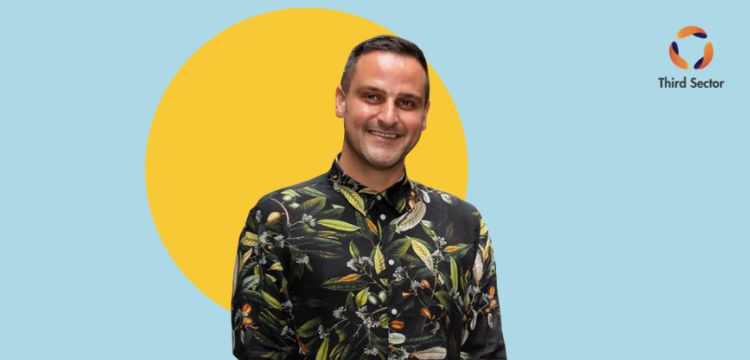In 2016, based on the ABS Census of Population and Housing, around 24,200 young people aged 15–24 (0.8% of all young people) experienced homelessness on Census night with similar rates of homelessness among males and females. Youth Projects aims to change this census and help the young people of Australia break the cycle of disadvantage.
Youth Projects provide front line support to young people and individuals experiencing disadvantage, unemployment, homelessness, alcohol and other drug issues, and people looking to re-engage with learning and employment. By providing to pathways to meaningful employment and training, health and life skills programs, harm prevention and outreach and social enterprise programs, they are able to prevent young people from becoming homeless.
Third Sector News talked to Ben Vasiliou, Chief Executive Officer of Youth Projects, and a 2021 Third Sector Awards CEO of the Year finalist. Ben has first-hand experience with sleeping rough and has since based his leadership on empathy with a genuine passion for breaking the cycle of disadvantage and his passion for creating equal access to social and economic participation for all people.
What was your driving force to continue making a positive impact despite the difficult times?
I’ve been poor. I’ve slept rough. I’ve had my dignity taken from me. I get it. It might’ve been some time ago but I can relate. I empathise. And now I build responses and systematic changes to ensure others who are there, can climb out, as well as preventing others from experiencing this. We act as a voice for the often voiceless. At the start of pandemic a lack of education and understanding of COVID-19 and the impact it would have was rife.
Join our Third Sector awards celebration this year. Book a ticket now!
Many vulnerable people don’t have phones or access to the internet. Nor did they have somewhere safe to lockdown. I saw this on the street and in communities across the country every day. We had to act. We had young people first out of work and often last back in. Multicultural and multifaith communities in secure work struggling to cope. It was the cycle of poverty being entrenched and deepened before our very eyes. We responded in the way we did not because it was easy, but because it was the right thing to do.
We went from fighting for PPE, masks and hand sanitiser to responding to the emerging food insecurity. We had waves of women fleeing family violence and thousands of young people in unsafe homes locked down, often with perpetrators. It was the perfect storm of issues. New prisoners released with no housing or support. People previously homeless being offered hotel isolation, but hotel owners ripped out any appliances to make food because they thought they’d be stolen. We knew if we didn’t respond no one would.
Now we find ourselves in a new kind of race. The national plan has been set to ease restrictions and only implement targeted lockdowns once we reach 70% & 80% two dose vaccination rates. That is likely to occur around November. The Premier just announced we are in this current lockdown for quite some time yet, with only some restrictions due to ease in 3 weeks, once we hit the first goal of 70% first dose. From a mental health perspective, we get that the lockdowns must need.
Youth Area Mental Health had a 10 month waitlist. The Australian newspaper reported the state government received a report earlier in 2021 outlining the impact on youth mental health. Each week, 342 teens attend hospital for mental health emergencies, 156 teens are rushed to hospital after self-harming and 37.3 teens require resuscitation on arrival to hospital.
What concerns me most is the vaccination rates across our heartland. As of the weekend, full vaccinated rates (aged 16+) were; Hume 21.%, Melton 23.4%, Brimbank 24.4%, Wyndham 26.2% and Whittlesea 25.2%. In comparison to Bayside 44.9%, Mornington Peninsula 41.1%. I’m not here to play postcode discrimination, but I am here to point out the bleeding obvious. Insecure work, lack of education, and cultural & language issues, coupled with a terribly flawed national vaccine roll out are impacting the most vulnerable communities.
What tools helped you achieve your success?
I’m driven by a dignified, nonjudgmental approach. I don’t like a crisis, but I am good at leading through one. I learnt this in my early career days starting a foundation in Bali after the ’02 Bali Bombings. The pandemic hit and I had to draw on a number of resources and learnings. I remember taking a design thinking class at Stanford – and this has been my go-to ever since around problem-solving.
I mean, innovation, at it’s very best, is just solving problems. In the social sector, their usually complex and critical, but at the heart of it, it’s like any other problem. So I focus on the 5 stages, empathise, define, ideate, prototype and test. From there we engage many critical thinkers around the problem.

This approach is then underpinned by our TOC, our story of impact, our impact outcomes framework which guides what we do. In terms of leadership at YP. We are guided by our ‘The Values Verdict: A guide to values-based leadership across all levels at Youth Projects’. It seeks to inform, guide and inspire our workforce on the appropriate behaviours that constitute effective leadership at Youth Projects – across all levels – and contains a suite of activities that you can do, individually or as a team, to gain a deeper understanding of our values and develop your own respective leadership qualities.
Organisational values are part of the fabric of our DNA. They describe the core ethics and principles that Youth Projects abides by, and inspires our employees’ and organisational success. They lead us through difficult and tough situations, and inspire our actions and resolve – we don’t make any important business decisions without having our values in mind. Our values are key to a collaborative, 1YP culture and helps us strive to achieve our mission and strategic goals. Values are important because they can help us to predict each other’s choices, and can help us avoid misunderstandings, frustration and distrust. Understanding that other people prioritise a different set of values that guide them toward different decisions, may help you better understand why their choices may be different from yours, but may be right for them.
As Brene Brown said, “Daring leaders to live into their values are never silent about hard things”. Having a clear set of values gives guidance for our employees’ decision-making, their work and helps our employees better understand what we stand for. They are a true reflection of our aspirations for appropriate workplace behaviour and play an important role in building a positive culture, both for our workforce and service users. From executive leadership to entry-level employees, we all become accountable for decisions by asking a simple question… Does my decision reflect our values at Youth Projects?
What can you say about being a finalist of the Third Sector Awards 2021?
I am humbled and honoured. Seriously, I still feel like a kid that was once on the wrong side of the track hoping for help. And here I am, 20 years later, giving that hope, giving that help up. I was surprised considering the calibre of finalists, they are all remarkable people doing such amazing things. This one is for my team. This one is for our clients. This one is for anyone that has ever battled. You can do it.
Want to be equipped with practical tools and strategies to overcome barriers and capture opportunities? Join this year’s Third Sector Live event.












